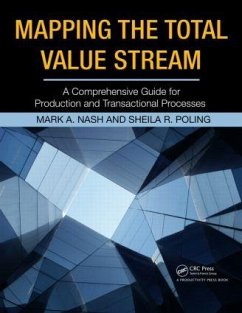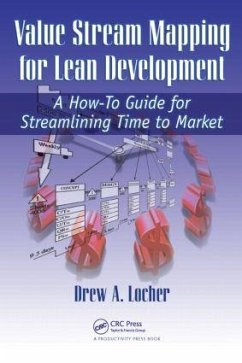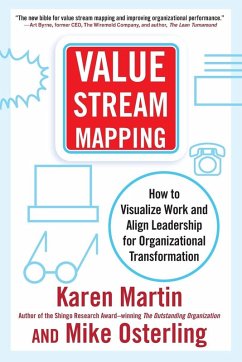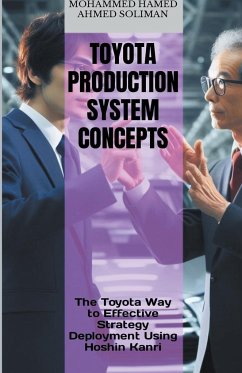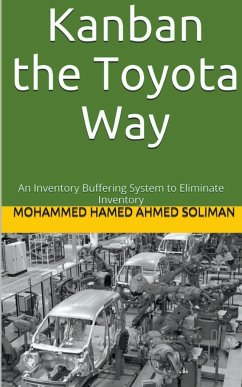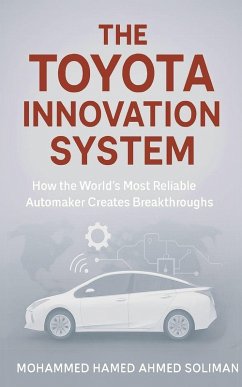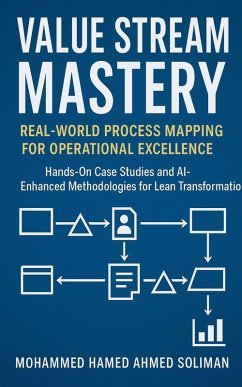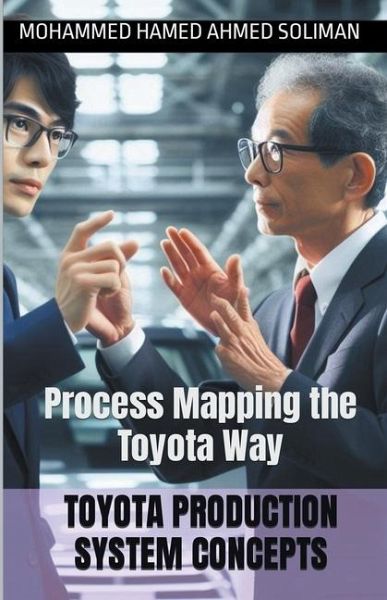
Process and Value Stream Mapping the Toyota Way
Versandkostenfrei!
Versandfertig in 1-2 Wochen
19,99 €
inkl. MwSt.

PAYBACK Punkte
10 °P sammeln!
Discover how Toyota revolutionized process mapping to eliminate waste and boost flow. This practical guide introduces Value Stream Mapping (VSM)-a foundational Lean tool that visually captures every step in the flow of materials and information required to deliver a product or service. Used effectively, process mapping enables teams to identify waste, streamline workflows, and align operations with customer value. At the heart of Toyota's world-renowned production system is the Material and Information Flow Diagram-a structured mapping approach that drives continuous improvement across the val...
Discover how Toyota revolutionized process mapping to eliminate waste and boost flow. This practical guide introduces Value Stream Mapping (VSM)-a foundational Lean tool that visually captures every step in the flow of materials and information required to deliver a product or service. Used effectively, process mapping enables teams to identify waste, streamline workflows, and align operations with customer value. At the heart of Toyota's world-renowned production system is the Material and Information Flow Diagram-a structured mapping approach that drives continuous improvement across the value stream. This book walks you through how Toyota uses this method to transform entire processes. Inside, you'll learn:What a value stream is-and why it matters How to create current state maps and uncover inefficiencies How to design a future state that supports flow and Lean goals Practical examples inspired by Toyota's real-world practices Whether you're in manufacturing, healthcare, or services, this book provides a clear, actionable framework to map, improve, and lead change-the Toyota Way. More about this Book: Value-Stream Mapping (VSM) or process mapping is drawing a picture of all the parts and information that are needed to make and deliver a product. It is an important tool used to make things better by finding and getting rid of waste. Toyota created a tool called a material and information flow diagram, which is very important for their production system. A value stream is everything that needs to happen to make and deliver a product to the customer, both the important things and the ones that are not so important. Value Stream Mapping usually starts with a team making a map of how things are right now. This means taking a picture of how materials and information move through a value stream. Next, the team creates a map of how things will be in the future. This means a picture of how things and information should move through the process to create value. Repeating this many times is the easiest and most effective way to help yourself and your co-workers learn to recognize what is important. Value-stream mapping is often used in lean manufacturing. However, people in charge of businesses in any field can find it useful. "For a hands-on, practical guide with templates and examples, see my book Value Stream Mastery."



